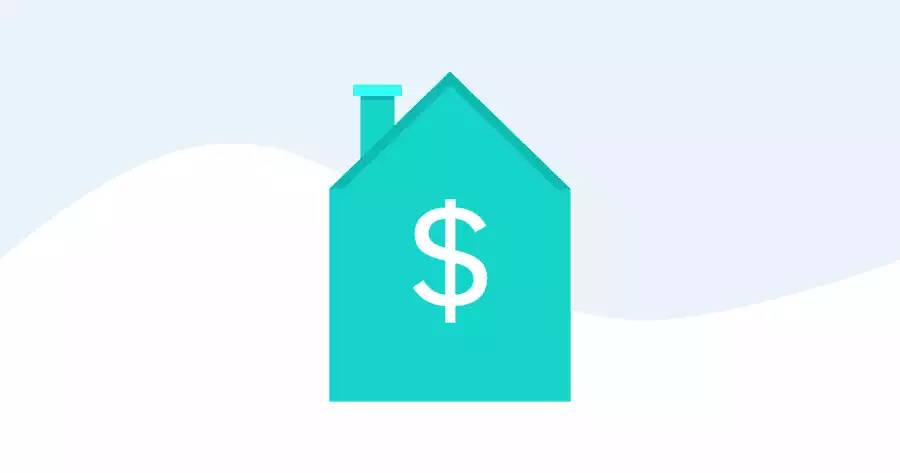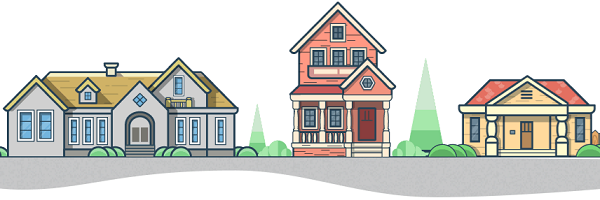
If you’re a mortgage holder, you’re fully aware of the costs and commitment involved. You’ll typically spend at least a couple of decades servicing the debt payments and racking up hefty interest charges along the way, which could probably buy you a luxury vehicle or two when added up.
A mortgage is, single-handedly, the most significant expense you’ll likely take on during your lifetime. It will directly impact other aspects of your finances, such as how much disposable income you have available, how much you can allocate toward a savings account, and how much other debt you can carry comfortably. As a result, structuring your mortgage in a way that enhances your lifestyle, saves you money, and improves your financial standing is vital.
One tactic you may wish to consider is refinancing your mortgage. It entails breaking your existing mortgage contract and replacing it with a new one that, ideally, has more favourable terms. If implemented at the right time and for the right reasons, refinancing your mortgage can yield tremendous benefits. Let's explore the main ones below.
Lock in a lower mortgage rate
The main reason homeowners choose to refinance their mortgage is to realize savings on interest costs from locking in a lower rate. The amount you can save may seem trivial at first, but over time it adds up.
The most popular type of mortgage in Canada is a 5-year fixed-rate mortgage. Under this arrangement, the borrower makes regular mortgage payments for five years at the rate assigned by the lender at the start of the mortgage. The rate remains the same for the duration of the term.
Suppose you're currently locked in such a mortgage contract, and, two years into it, interest rates suddenly plummet. Now, you find yourself in a predicament: current mortgages offer much cheaper rates, and you’re stuck paying an exceedingly high rate for another three years! In this situation, it makes sense to take advantage of the lower rates by refinancing your mortgage.
Assume your outstanding mortgage balance sits at $375,000 and you’re paying a fixed rate of 4.5%. Two years have elapsed, and the average mortgage rate drops to 3%, which you’re confident a lender will approve you for if you were to refinance. Should you obtain a new mortgage at this rate, you’ll pocket savings of $16,875 in interest over the remaining three years of your mortgage term (4.5% – 3% x $375,000 x 3 years).
Rocket Mortgage makes it easy to achieve your homeownership and financial goals with tailored mortgage solutions and a simple digital mortgage process. Start your home loan journey today.
FOR ALL YOUR MORTGAGE NEEDS, TRUST ROCKET MORTGAGE
However, you’ll also have to crunch some numbers to determine if breaking your mortgage is financially feasible, especially if there are costs and penalties involved in doing so.
The primary cost associated with refinancing is the penalty you must pay to your lender for ending your mortgage before your term’s maturity. It’s common for fixed-rate mortgages. Lenders charge this fee as compensation for the future interest revenue they’ll forfeit when you lock in a lower rate – you’re not getting away that easy!
Other costs you may incur should you refinance include:
- Legal fees
- Appraisal fee
- Mortgage registration fee
- Mortgage discharge fee
Provided the interest savings exceed the total refinancing costs by a wide enough margin, breaking your mortgage early to obtain a lower rate is advantageous.
Access the equity in your home
By refinancing your mortgage, you can gain access to the equity in your home and put it to use for any number of activities or expenditures. You can use the funds to purchase a new vehicle, cover an extended vacation, or finance your child’s college education.
But how much are you allowed to borrow when leveraging the equity in your home? To determine this amount, you’ll have to know your home’s loan-to-value ratio (LTV).
The LTV is a financial metric that measures your mortgage relative to the fair market value of your property. Knowing this number is crucial because you’re only allowed to refinance up to 80% of your property’s value in Canada.
For example, suppose your current outstanding mortgage balance is $250,000, while your home’s appraised value is $340,000. In this case, your LTV is 73.52%. The maximum amount you can refinance for is $272,000 ($340,000 x 80%). Assuming you choose to refinance for this amount, $250,000 will go toward your remaining mortgage, and the balance of $22,000 will be available for you to spend as you see fit.
Remember that refinancing to access your home’s equity involves breaking your mortgage early, which means you’ll be subject to the fees and penalties as described in the previous section. Be sure to factor these into your decision before shopping for a new mortgage.
Consolidate your debt at a lower rate
Are you experiencing financial hardship due to the amount of high-interest debt you carry? Then you may want to explore consolidating it with your mortgage. This strategy will allow you to secure a lower rate for your total debt load and reduce your monthly payment obligations.
Debt consolidation involves combining all your existing debt into a single loan (in this case, a mortgage), including credit cards, lines of credit, auto loans, and personal loans. Since your home backs the mortgage, a tangible asset that has the potential to appreciate, lenders are more inclined to offer you a lower rate. When you compare the rates a typical mortgage offers with rates attached to an unsecured loan, for example, the difference is stark. Merging your mortgage with these high-cost loan products can significantly reduce your interest expense.
With only one monthly (or bi-weekly) payment to contend with, servicing your debt will be more manageable, as well. And by making consistent payments for an extended period, you can derive other benefits, like improving your credit score.
Refinancing to consolidate debt works in much the same way as refinancing to access your home’s equity:
- Determine your property’s fair market value
- Multiply the fair market value by 80% to determine the maximum amount you can refinance.
- Deduct your maximum refinancing amount from your current mortgage balance to determine how much you can use to settle your various debt obligations.
Depending on how much progress you’ve made in paying down your mortgage, you may or may not have enough home equity to borrow the amount required. However, consolidating even a portion of your debt could go a long way to revamping your finances.

Switch to a better amortization period
Your amortization period refers to the length of time needed to pay your mortgage off in full. In Canada, amortization periods typically range from 15 years to 35 years, with 25 years being the most common.
Short amortization periods are characterized by higher mortgage payments and lower total interest costs. Conversely, lengthy amortization periods involve smaller payments but result in higher total interest costs. Depending on your circumstances, goals, and preferences, you may find one type is better for you than the other. Refinancing your mortgage will provide you with the flexibility to tailor your amortization period to your specific needs.
If you’re experiencing cash flow problems, extending your amortization period will work to reduce your mortgage payments, giving you some breathing room. Alternatively, if you're adamant about extinguishing your mortgage quickly, shortening your amortization period will enable you to make larger payments, helping you reach your goal sooner.
Final thoughts
There are many benefits to refinancing your mortgage, but they essentially centre on one aspect: saving money. Your mortgage will likely span two or more decades, so structuring – or restructuring it – and utilizing it in ways that boost your finances is a no-brainer. However, it’s vital to keep in mind that refinancing your mortgage should be done wisely. Whatever your reason for doing so, there are costs involved in breaking your mortgage early, so before pulling the trigger, ensure the deal you’re getting will be worth it.
Find the best mortgage and mortgage rates for your needs by answering a few questions.





















About The Author: Mark Gregorski
Mark is a freelance writer who specializes in writing content for firms in the financial services industry, including fintech. He has written articles about personal finance, mortgages, and investing and is passionate about educating people on making wise financial decisions. Mark graduated from the Northern Alberta Institute of Technology with a degree in finance and has more than ten years of experience as an accountant. Outside of writing, he enjoys playing poker, going to the gym, composing music, and learning about digital marketing
More posts by Mark Gregorski